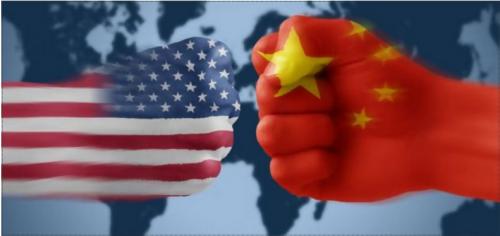The trade war of the US against the world: are they secure?
- Opinión

A new unilateral customs announcement has shaken the bases of the international trade order. The president of the US, Donald Trump announced, on the last day of February, the imposition of a 25% tariff on steel imports and 10% on aluminum. The decision, accompanied by the slogan “we want free, fair and smart trade” confirms the position of the President of arbitrary protection and without economic calculation on US sectors, branches and enterprises in the face of the multilateral trade order.
The norms of the WTO regarding the functioning of international trade do not allow unilateral tariff increases and they could be brought to judgment. Nevertheless, under the US law of trade expansion of 1962, the president can, without appeal to Congress, decree customs measures that concern national security. Outside of the US, the natural response, under the elementary principles of international relations, would be acts of reciprocity. Trump can order actions that may be taken internally in his country, but he cannot control reprisals that his policies may incur outside of the US.
There is one problem: the US is a very small producer of steel and a minor consumer of steel. The big producers of steel are China (46.3%) and to a much lesser extent Japan and India. China, Russia, Canada and India produce similar proportions of aluminum. Thus, in response to the actions taken by the US, these countries can undertake one of two measures:
1. Open a case with the WTO, apply reprisals, raise tariffs on imported US products, and restrict exemptions with specific taxes on them.
2. Reproduce the Korean posture regarding refrigerators: “if you want to pay more for your steel and aluminum, go for it!”
The Chinese advantage in the production of steel is eight times compared to the US; in demand it is seven times. China’s exports of steel to the world equal the annual production of the US. China imports cheap raw materials due to depressed markets in recent years and transforms steel, with low wages and high technology, because it came late to the industry. The US transforms iron into steel with high wages and intermediate technology, because it came in early. It is worth recalling that Great Britain, Sweden and Germany have disappeared from this industry; they had arrived early.
The political and economic power that the transnationals hold here is immense. Given this, the steelmakers that could be affected include: ArcelorMittal, /Rizhao Steel, China Baowu Group, Fangda Steel; and these aluminum makers: USRusal, Aluminium Corp of China, China Power Investment Corporation, Rio Tinto Alcan Inc., Norsk Hydro ASA. These will form a block that can only with difficulty be detained when they take reprisals, reciprocal actions, against the US protectionist measure. The export of American automobiles and aircraft will decrease because their costs will rise. A small tariff on these would finish the automobile market that still remains to them in the world, since it is already not very important compared to the auto industry of China, India, Germany and Japan. Or the aeronautic industry.
Once again, this decision becomes anti-theoretic in the face of the economic problems that confront the US and the stagnation in which it has been stuck for a decade. The increase of duties on imports of steel and aluminum necessarily generates an increase in costs for industries consuming these vital materials. It will generate higher prices in: soft drinks/beer, canned food, machines and equipment, aircrafts, automobiles, refrigerators, washing machines (also protected by presidential decree), etc. Again, it will be US consumers who will end up paying the final price hike derived from these tariffs, while the world will be astonished at the futility of these measures.
The question is, who will benefit from the increase in costs of steel production and in the derived automobile and metal-mechanic production? Even if it be true that the United States Steel Corp. (founded by Andrew Carnegie at the end of the XIX century) and A.K. Steel Corp., among others, had sought measures of protection, nevertheless, the measure will not offer them conditions of development, production, trade and national employment in the face of the world market. This measure can have counterproductive consequences in the growth of the US economy and the loss of the little international competitiveness that is left.
The American protectionist agenda will continue to accumulate trade discontent around the world. Repeated warnings of the consequences of the unilateral increase in protectionist policies have been ignored by the White House. Meanwhile the US Ambassador in Mexico resigned the same day as this announcement, along with the most recent White House communications director.
In closing, Trump published in his Twitter account: “trade wars are good and easy to win”. With this, in addition to making a public display of his ignorance, he forgets that in trade wars all the participants lose and, almost all end up militarily.
05/03/2018.-
(Translated for ALAI by Jordan Bishop)
- Oscar Ugarteche, Coordinator of the OBELA Project, titular researcher with IIEc-UNAM, SNI/CONACYT.
- Armando Negrete, OBELA Project.
Del mismo autor
- El multilateralismo bipolar 08/03/2022
- Bipolar multilateralism 07/03/2022
- What does 2022 bring? Uncertainty 31/01/2022
- ¿Qué trae el 2022? Incertidumbre 31/01/2022
- The most expensive Christmas of the century... (so far) 20/01/2022
- La navidad más cara del siglo (hasta ahora) 20/01/2022
- Lo que pasó en el 2021 10/01/2022
- What happened in 2021 10/01/2022
- Estados Unidos: el elefante en la habitación 08/11/2021
- The elephant in the room 07/11/2021
Clasificado en
Libre Comercio
- José Ramón Cabañas Rodríguez 01/04/2022
- Jorge Murga Armas 31/03/2022
- Jorge Murga Armas 30/03/2022
- Lori Wallach 22/03/2022
- Néstor Araujo 22/03/2022








